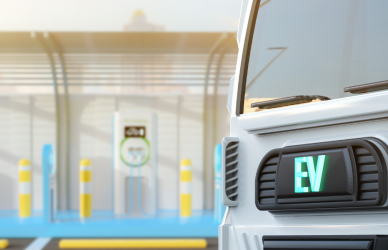Congressmen Doug LaMalfa (R-California) and Chris Pappas (D-New Hampshire) are leading a coalition of 31 members of Congress in calling for the Environmental Protection Agency (EPA) to reevaluate its newly proposed Phase 3 Heavy-Duty Truck Rule.
The EPA’s Phase 3 plan includes a goal to electrify 25% of new long-haul trucks by 2032, along with similar targets for short-haul regional tractors and vocational vehicles. Additionally, the proposal seeks to enhance the already stringent “Phase 2” GHG emissions regulations for 2027 trucks, while introducing new emissions standards starting in 2028.
Despite previous efforts by other senators and representatives to sway EPA Chief Michael S. Regan, the agency has not yet budged on the rule; however, with a bipartisan group of signatures including 27 Republicans and four Democrats, as well as Senator Mike Braun (Republican of Indiana), this latest letter demands the EPA’s attention.
In the latest letter, the members of Congress said they “have heard from constituents concerned that this rule will fundamentally transform the truck industry and should more fully take into consideration the affordability of future heavy-duty trucks and the ability of our nation’s commercial charging infrastructure to support the upcoming demand in its effort to drive modernization of America’s aging truck fleet.”
The letter strongly condemns the EPA’s decision to skip the advance notice of proposed rulemaking (ANPRM) stage. It also expresses disappointment in the EPA for refusing to extend the comment period on its notice of proposed rulemaking, even after the period had ended in June.
“There is much at stake for the truck industry, its employees, and the economy, and the EPA should take the time needed to carefully consider the concerns raised during the rulemaking,” the letter states. EPA’s cost estimates presented the biggest concern — EPA did not consider the 12% federal excise tax (FET), state sales tax or insurance premiums for prospective owners of “zero-emission” electric heavy-duty trucks (ZEVs). “The EPA should consider whether these important factors must be included in its analysis.”
The group expressed concerns about the lack of charging infrastructure for zero-emission vehicles (ZEVs) and the need for upgrades to the distribution system. They emphasized the importance of a coordinated effort across the government to support the EPA’s proposed rule. The Congressmembers also highlighted the need for the EPA to take into account the practical availability and speed of building the necessary ZEV infrastructure.
Furthermore, the representatives stated that trucking business owners will not invest in heavy-duty trucks that are beyond their financial means, unable to be charged, or do not meet their specific requirements. They urged the EPA to carefully consider these concerns when making decisions.
Source: Overdrive











